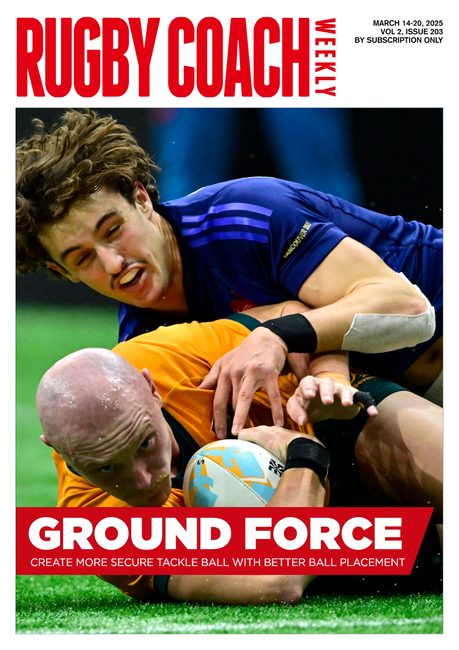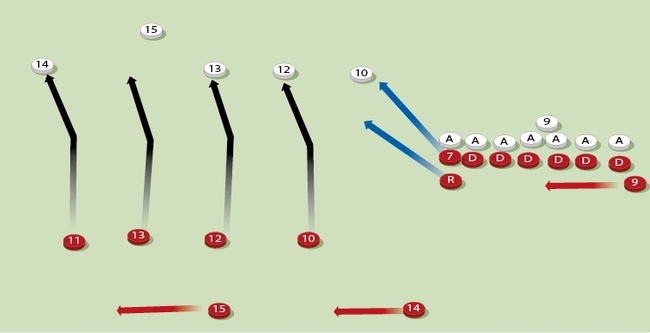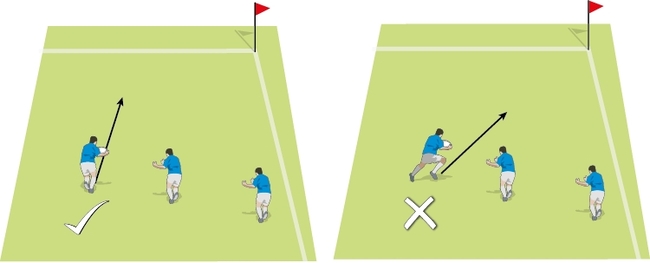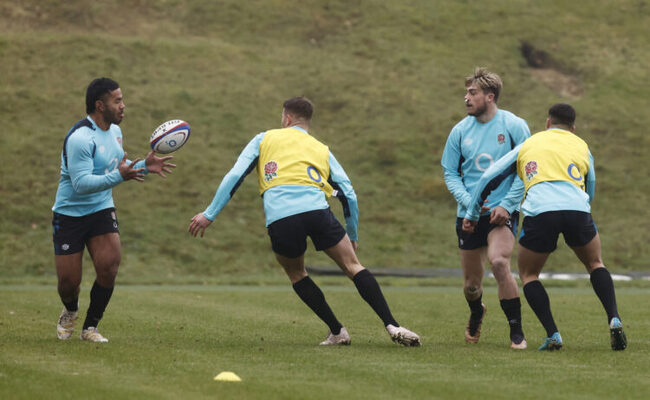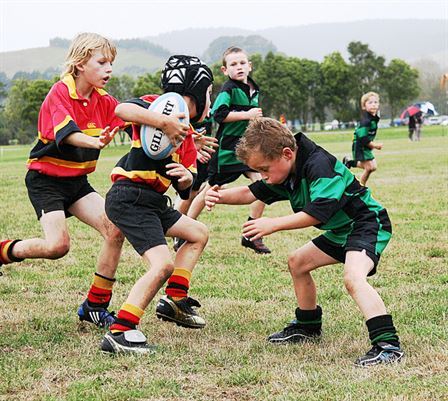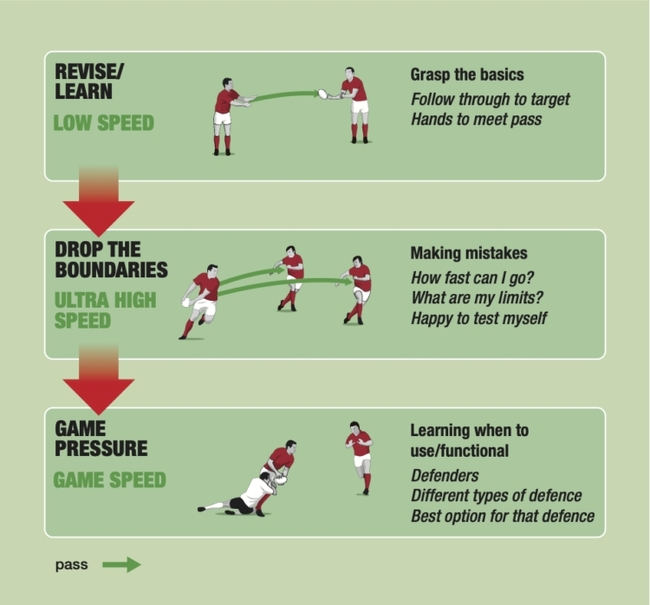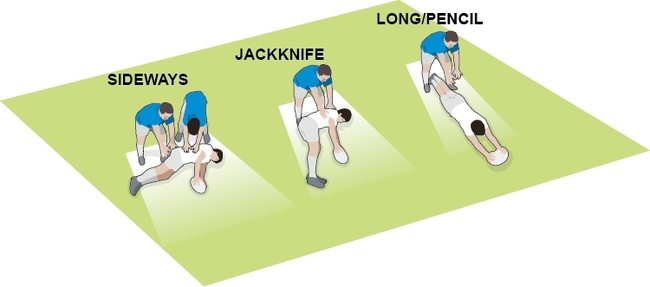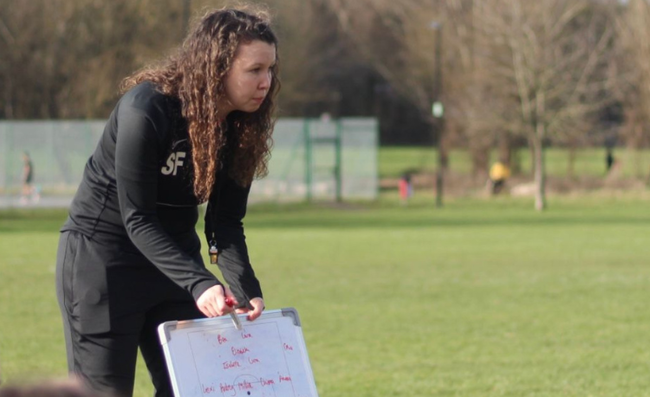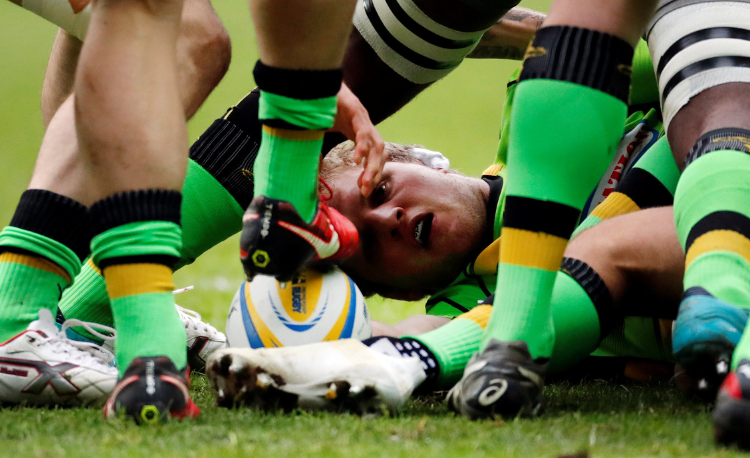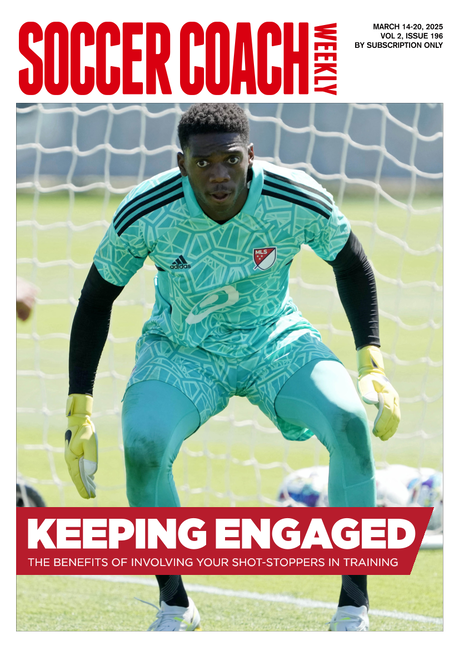How can I introduce more “dog” into my players?
I coach an U13 team in Western Australia.
I am trying to increase the urgency and physicality of my forwards at the breakdown. We run a variety of intense ruck drills at training on Tuesdays and Thursday which the lads enjoy. They seem to hit me and the other coaches hard when cleaning out but they back off come game time on a Saturday.
This could be because they are used to the coaches and are intimidated by the opposition. Out of eight there are maybe three who work hard at the ruck with good attitude and technique with the remainder arriving relatively quickly but immediately losing interest in the contest.
So the question is how can I introduce more “dog” into my 12 and 13 year olds!
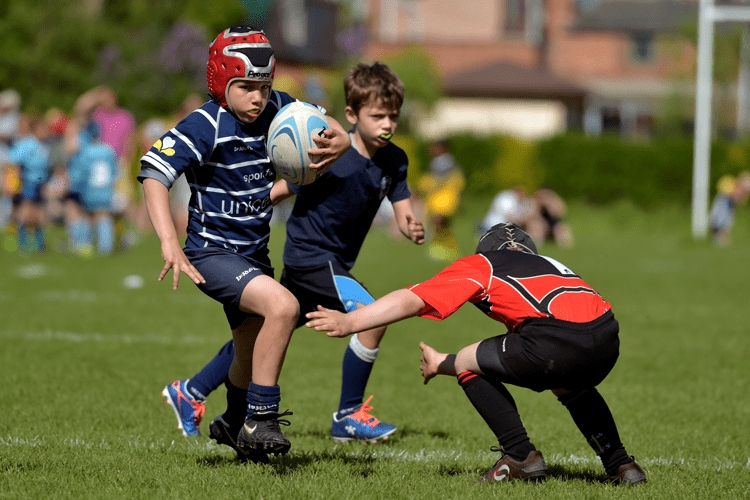
Answer
I receive quite a few emails on this topic, so this isn’t an isolated situation. However, I will hasten to add, it’s not a problem either.
Up to the age of 17/18, boys grow at very different speeds. This is both physically and mentally. It’s likely that the more “aggressive” teams you face have a number of boys are ahead of the curve in this sense. They are more mature than their peers.
Also, the general make-up of a team at U12s and U13s tends to rely on two or three boys to lead the way in terms of aggression. If they are the better players too, then the rest tend to follow.
What makes them that much more “aggressive” is very much due to environmental factors outside your control. For example, the second-born child tends to be more abrasive than the first. If the boy is a “little” brother, that adds to this. Of course, parents make a difference too in this matter.
You can quickly see that your chances to increase their aggressiveness in terms of being more competitive in the contact area are vastly reduced. So what can you do?
Don’t overdo the encouragement, big speeches or other motivational tools to make the players play harder. It’s likely to have the reverse effect and make the players less likely to want to improve their contact skills.
Keep developing their contact skills in an appropriate way. That means no coach involvement in holding pads/bags. Build up the intensity in sessions, from walking to full-on contact. Keep the distances down to reduce speeds so players can concentrate on their technique and not whether they will get hurt.
Having seen lots of teams develop over these age groups in the past 20+ years, I can safely say that the best-coached teams stick together and become better. This is rarely the case with the teams filled with aggressive players and are coached to win by aggression. Accept some players will fall by the wayside. Rugby isn’t for all. It takes a sort of inner strength that no coach or parent can force on a player. However, support and positive reinforcement do work.
Get the contact balance right in training, with plenty of opportunities for to be successful in the contact area as well as avoiding it. BUT, this is the key, let the players discover what works for them. Do this in small-sided games where there’s a small consequence of making mistakes, but a big boost for being successful. Perhaps overload the defence but only allow them to make low tackles.
In summary:
I am trying to increase the urgency and physicality of my forwards at the breakdown. We run a variety of intense ruck drills at training on Tuesdays and Thursday which the lads enjoy. They seem to hit me and the other coaches hard when cleaning out but they back off come game time on a Saturday.
This could be because they are used to the coaches and are intimidated by the opposition. Out of eight there are maybe three who work hard at the ruck with good attitude and technique with the remainder arriving relatively quickly but immediately losing interest in the contest.
So the question is how can I introduce more “dog” into my 12 and 13 year olds!

Answer
I receive quite a few emails on this topic, so this isn’t an isolated situation. However, I will hasten to add, it’s not a problem either.
Up to the age of 17/18, boys grow at very different speeds. This is both physically and mentally. It’s likely that the more “aggressive” teams you face have a number of boys are ahead of the curve in this sense. They are more mature than their peers.
Also, the general make-up of a team at U12s and U13s tends to rely on two or three boys to lead the way in terms of aggression. If they are the better players too, then the rest tend to follow.
What makes them that much more “aggressive” is very much due to environmental factors outside your control. For example, the second-born child tends to be more abrasive than the first. If the boy is a “little” brother, that adds to this. Of course, parents make a difference too in this matter.
You can quickly see that your chances to increase their aggressiveness in terms of being more competitive in the contact area are vastly reduced. So what can you do?
Keep your message clear but calm
Don’t overdo the encouragement, big speeches or other motivational tools to make the players play harder. It’s likely to have the reverse effect and make the players less likely to want to improve their contact skills.
The right coaching for kids
Keep developing their contact skills in an appropriate way. That means no coach involvement in holding pads/bags. Build up the intensity in sessions, from walking to full-on contact. Keep the distances down to reduce speeds so players can concentrate on their technique and not whether they will get hurt.
Be patient
Having seen lots of teams develop over these age groups in the past 20+ years, I can safely say that the best-coached teams stick together and become better. This is rarely the case with the teams filled with aggressive players and are coached to win by aggression. Accept some players will fall by the wayside. Rugby isn’t for all. It takes a sort of inner strength that no coach or parent can force on a player. However, support and positive reinforcement do work.
Let them learn their own physicality
Get the contact balance right in training, with plenty of opportunities for to be successful in the contact area as well as avoiding it. BUT, this is the key, let the players discover what works for them. Do this in small-sided games where there’s a small consequence of making mistakes, but a big boost for being successful. Perhaps overload the defence but only allow them to make low tackles.
In summary:
- Don’t panic. It will happen. The players are going through a massive change in these years.
- Train for excellent technique with lots of game situations.
- Be positive in your encouragement. Let players learn themselves how to be “brave”.
Newsletter Sign Up
Coaches Testimonials

Gerald Kearney, Downtown Las Vegas Soccer Club

Paul Butler, Florida, USA

Rick Shields, Springboro, USA

Tony Green, Pierrefonds Titans, Quebec, Canada
Subscribe Today
Be a more effective, more successful rugby coach
In a recent survey 89% of subscribers said Rugby Coach Weekly makes them more confident, 91% said Rugby Coach Weekly makes them a more effective coach and 93% said Rugby Coach Weekly makes them more inspired.
Get Weekly Inspiration
All the latest techniques and approaches
Rugby Coach Weekly offers proven and easy to use rugby drills, coaching sessions, practice plans, small-sided games, warm-ups, training tips and advice.
We've been at the cutting edge of rugby coaching since we launched in 2005, creating resources for the grassroots youth coach, following best practice from around the world and insights from the professional game.


